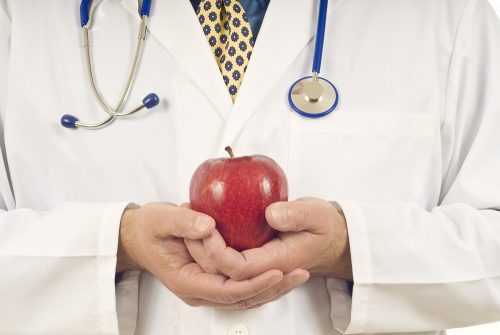The researchers reviewed studies that tested the protective effect of apples against various cancers through a meta-analysis that included a comparison and combination of the results of all studies that were conducted in Europe, the Far East, South America and Africa, between the years 2014-1994

A new study conducted at the University of Perugia in Italy and including a meta-analysis of 41 studies conducted around the world states that eating apples can reduce the risk of getting various types of cancer.
The researchers reviewed studies that examined the protective effect of apples against various cancers through a meta-analysis that included a comparison and compilation of the results of all studies conducted in Europe, the Far East, South America and Africa, between the years 2014-1994 and reached a dramatic conclusion. All studies were conducted among women and men aged 18 and examined the relationship between apple consumption and the risk of developing various cancers.
Studies were also selected that clearly indicated the amount of apples eaten by the participants, provided statistical information to assess the relationship between apple consumption and cancer, as well as studies that neutralized various factors that could bias the results, for example, the age of the subjects, smoking, alcohol consumption, vitamin consumption of type E and C, and the like. During the study conducted by a team of researchers from the University of Perugia in Italy, a statistical comparison was also made between the various studies from around the world in order to weigh unequivocal results and define the exact amount required to reduce the risk of cancer. A high consumption of apples was defined, for example, as eating at least one apple a day or more or alternatively, several apples during the week. In some studies, consumption levels were determined in grams, with high consumption defined as eating at least 25 grams of apples daily. Low consumption of apples was defined as eating one apple per week or less.
Miri Ziv, CEO of the Cancer Society, explained that: "The results of the study prove the direct link between nutrition and reducing the risk of getting cancer and join our recommendation to maintain a healthy lifestyle, which includes physical activity, normal body weight, a healthy and balanced diet, limiting alcohol and avoiding smoking, which can reduce the risk of getting sick. According to the study, including apples in the daily menu may reduce the risk of getting cancer."
From the findings summarized from all 41 studies, the researchers came up with clear conclusions relating to different types of cancer:
- Apple consumption and the risk of lung cancer - Weighting data from 10 studies in the field shows that a high consumption, meaning eating at least one apple per day, reduced the risk of lung cancer by 12%, compared to a low consumption of apples.
- Apple consumption and the risk of gastrointestinal cancers - A weighting of data from 15 studies shows that high consumption, i.e. eating at least one apple per day, reduced the risk of various types of cancer of the digestive system, such as: esophageal cancer, colon cancer, pancreatic cancer, mouth cancer, by 28%, compared to consumption Low of apples.
- Apple consumption and the risk of breast cancer - Weighing data from 8 studies, it appears that a high consumption of apples, meaning eating at least one apple per day, reduced the risk of breast cancer by 11%, compared to a low consumption of apples.
- No relationship was found between Eating apples and a decrease in the risk of getting prostate cancer. Also, statistical processing was not possible regarding other types of cancer for which only one study was conducted.
From the data of the plant council, the fruit branch shows that in an apple tree Medium has about 81 calories, about 0.27 grams of protein, about 0.49 grams of fat, about 21.05 grams of carbohydrates, as well as dietary fiber, calcium, iron, magnesium, phosphorus, potassium, sodium, zinc, vitamin C, vitamin B1, B2, B6 , B12 vitamin A and more.
The study was published on September 19, 2016 in the scientific journal for public health and nutrition Public Health Nutrition

5 תגובות
It could also be that eating apples comes instead of eating sweets or other food and what reduces the chance of cancer is the lack of the other food and not the apples.
Is there a distinction between different varieties of apples or at least between a red and a green apple?
September 19 of course. I will fix it
The publication date of the article is incorrect
Today is October 4 and it is claimed that the article was published on October 19, 16
An Apple a Day Keeps the Doctor Away